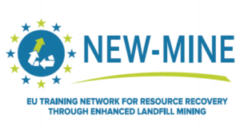SIM² KU Leuven is delighted to announce that its SBO project “SMART” has been formally approved by SIM & VLAIO. SMART stands for Sustainable Metal Extraction from Tailings
SMART is a strategic basic research project within the long-term SIM MaRes programme on “Materials from Solid and Liquid Industrial Process Residues”. The SMART project, which was developed together with SIM KU Leuven’s strategic research partners VITO and UGent, as well as FLAMAC and a plethora of Flemish companies, is the first ever project in Flanders that is 100% dedicated to finding zero-waste solutions for tailings, i.e. the materials left over after the process of separating the valuable fraction from the uneconomic fraction (gangue) of an ore.
SIM SBO SMART aims to develop a generic toolbox for the sustainable metal extraction from a wide variety of both historical and fresh tailings, using combinations of advanced hydrometallurgical, solvometallurgical and biometallurgical methods. After the metal extraction a clean mineral residue is left behind. The leaching toolbox is to represent a core innovative part of the broader SIM MaRes (Programme) toolbox, which also involves (1) metal recovery from the obtained leachates, (2) valorisation of the residual, cleaned mineral matrix and/or (3) concentration and stabilisation of any hazardous metals. SMART provides the MaRes partners with breakthrough technology, which will be of interest for (critical) metal recovery from tailings (Envisan, Campine, Nyrstar), a new source of metals (Campine, Nyrstar), environmentally-clean raw materials (Sibelco). Several Flemish SME’s are included. They will benefit from technology upscaling and implementation (MEAM and Nucomat), while SGS will be able to extend its activity in this field. This project is of strategic interest for the Flemish partners of EIT RawMaterials.
Key project data:
Partners: SIM² KU Leuven (coordinator), VITO, UGent & FLAMAC
Expected starting date: January 1, 2017
Project duration: 36 months
Research budget: € 1.464.490; 134 person months or 3.7 FTE’s for 3 years


